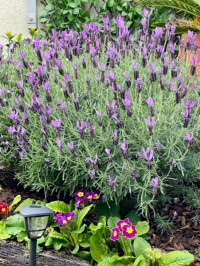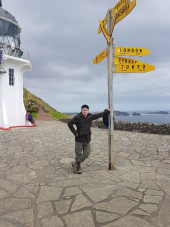Issue 57 December 2022
Kia ora koutou and welcome to the December edition of Bridging the Gap. I’m Wajiha Azimi, the Interpreter Coordinator for MBIE.
Merry Christmas and happy new year everyone, I hope you have a great holiday ahead and enjoy the sunshine. The Refugee Status Unit will be closed 24 December 2022 to 4 January 2023.
On this page
The information in this newsletter was accurate at the time it was sent in December 2022.
For up-to-date information about COVID-19, visit the Unite against COVID-19 website.
Unite against COVID-19(external link) — Te Whatu Ora — Health New Zealand
Reminder to all interpreters
From 1 July 2024 all interpreters working for New Zealand’s public sector will need to have an appropriate NAATI credential. This will usually be the Recognised Practising Interpreter (RPI) credential or the Certified Provisional Interpreter (CPI) credential.
The interpreting service providers are aware of this requirement and are supporting the Ministry of Business, Innovation and Employment (MBIE) to help interpreters to gain an appropriate credential by the 1 July 2024 deadline.
Many interpreters have already undertaken fully funded training at a tertiary education institution, and some are now proceeding to sit their NAATI certification test(s).
New standards and certification requirements
Update from the Refugee Status Unit
Most interviews are now booked as in person and face to face at the Refugee Status Unit (162 Victoria St West, Auckland) but in some circumstances we will still book interpreters via MS Teams or Zoom.
Most interpreters will be booked through the language assistance providers but in some circumstances, we still need to book directly.
When you arrive at 162 Victoria St West, give your name to the security guards, and say you are here to interpret for the Refugee Status Unit. Any problems please call me or the Refugee Status Unit at the contact details below.
You can’t work remotely (MS Teams or Zoom) unless you are in New Zealand or Australia, because of security concerns. You need to declare your location if you are out of New Zealand.
Please remember the Refugee and Protection Officer needs to hear everything which is said in the room. Please raise your hand if you need the client to stop talking to give you a chance to interpret. Don’t add or omit anything or summarise what the client is saying.
Update from Refugee Quota Programme
Transitioning to Language Assistance Services
The November 2022 intake has been the first real chance for the Refugee Quota Branch to lean into our transition to Language Assistance Services (LAS). I would like to thank both the LAS service providers and our interpreters for your patience and support over the last 5 weeks.
One of our goals with the transition to LAS is to enhance our rare language interpreter supply chain.
Currently our rare languages for face-to-face interpreting are as follows:
- Turkish
- Tigrinya/Tigray
- Karen
- Rohingya
- Kinyarwanda
- Kunama
- Burmese
While we are no longer adding new interpreters to our RQP interpreter list, we encourage any new interpreters interested in interpreting for the refugee quota programme to register with the LAS providers and/or advise us which providers you are already registered with. This can be done be sending an email to RQP@mbie.govt.nz
Most providers have an online registration process on their website. Examples of 2 online registration process can be seen at the links below.
Become An Interpreter Form(external link) — Straker Translations
Become an Interpreter(external link) — Interpreting New Zealand
You can also see the full list of face to face interpreting service providers by location with links to their websites and contact information.
Community languages providers by location
Medical bookings take precedence over reception programme bookings
Our onsite medical team is required to complete health screening inside very tight timeframes. This can mean some interpreter bookings are reshuffled particularly for rare languages and/or high needs families requiring specialist treatments or health care professionals in short supply.
If an interpreter accepts a full day of health screening and has already accepted a reception programme booking on the same day, we kindly ask that interpreters contact the provider to advise they are no longer available. This way the provider can take steps to fill the booking for the reception programme vacancy.
Moving around 251 Massey Road safely
Thank you to all interpreters who abide by the 10km speed limits when arriving and departing 251 Massey Road. Just so you know, speed is monitored by our onsite security team. Adhering to the speed restrictions is important as we have a large number of people living and working on site including young children.
Debriefing intake 3 and check-in with list interpreters
The RQP Support Team will be hosting remote debrief and check in sessions on Tuesday and Thursday 6 and 8 December 2022. The purpose of these meetings is to listen to interpreter feedback and learn what has worked well for intake three and also hear about the challenges.
Each session will start with a brief recap of Language Assistance Services (LAS). We will also touch on our plan to transition to LAS and the advantages of doing this. If you are interested in attending a debrief, please see icalendar invites below for each session:
Tuesday, 6 December 2022 1pm to 1:30pm(external link)
Thursday, 8 December 2022 1pm to 2pm(external link)
Will the Mangere Refugee and Resettlement Centre be closing for Xmas and New Year?
The downstream impacts of the pandemic on global travel are ongoing. This means we never really shut down over Christmas and New Year.
While we are not running any further reception programmes this year, we are expecting some small groups of families to arrive across December for Intake 4 (January 2023). The Immigration New Zealand Office at 251 Massey Road closes on Friday 23 December and reopens with reduced staff numbers on Wednesday 4 January 2023. Most of the RQP team will be taking some very well-deserved leave until the following Monday 9 January. A gradual increase in staffing levels will occur as we build to the first Intake of January 2023 which begins on Monday 16 January 2023.
Thanks again to all our interpreters and service providers, have a fantastic Christmas and New Year break and we look forward to working with you all again next year.
If you have any interpreting issues you can email the Refugee Quota Programme at RQP@mbie.govt.nz. Emails to this account are checked on a daily basis.
Introducing new Refugee and Protection Officers at RSU
Liz Tan

Hi everyone, my preferred name is Liz. I have a past life in Malaysia as a prosecutor and a private counsel. In New Zealand, I’ve worked at a law firm for about 2 to 3 years assisting a Barrister in the litigation team and subsequently spent 5 to 6 years at the Ministry of Justice approving legal aid mainly for matters in the civil, refugee/immigration and family jurisdictions.
My younger self was more of a globe-trotter and trekking in Patagonia was among the best. COVID-19 then transformed me into what I call myself, a crazy plant lady. When my plants don’t need me, I am also a postgrad student and a beginner archer. I’m excited to join the RSU family and look forward to meeting all of you soon!
Carissa San Diego

Kia ora! My name is Carissa, and I am very excited to be joining the Refugee Status Unit.
I have a BA and LLB from the University of Auckland. I speak fluent English, Tagalog, decent Spanish and can order food in French and Italian.
When I’m not working, you’d normally find me dancing, listening to hip-hop and waiting for the next House of the Dragon episode.
Emily Hagen

Emily joins the team from her role as a Resettlement Case Officer with the Afghan Resettlement response. Prior to joining MBIE, her career has been in Marketing and Finance management.
Inspired by many years volunteering in the refugee resettlement space, Emily has worked towards a career move to the sector and is currently studying politics and international relations – which answers the question of what she does in her spare time!
Phillip Phou

Professional history: Worked at the Ministry of Justice for the Criminal Courts and specialist tribunals where I looked after several interesting cases including an actual witchcraft trial. Helped out with the IPT and still have contacts there. Began working at INZ at the Henderson office. Dealing with various exceptions to the border closure even assisted with the Afghan visas during the evacuations.
Interests: Books, games, books about games and games about books. Video games, tabletop RPGS and boardgames. Manga and Anime. For exercise used to do fencing (the sport with the swords) now days mostly into running, hiking and office football.
Hector Hines
My name is Hector. After an extended period of working and living in Vietnam, India and Scotland, I returned to my hometown Wellington in 2020 to finish a Masters in Migration where I had an internship in the National Migration team at the Red Cross. I speak Danish (am keen to learn a third language) and enjoy the outdoors. A few years ago I walked the length of the South Island te Araroa trail. I am passionate about improving the quality of the refugee pathway to New Zealand and have recently finished a stint volunteering as a refugee resettlement support worker in Wellington, which I found extremely rewarding.
Family violence training
In May, approximately 30 staff from RSU and RQP attended training facilitated by Shine on responding to family violence and improving our interviewing and writing to incorporate principles of empathy and empowerment.
The training emphasised switching language from a focus on the ‘victim’ to focus on the ‘perpetrator’ and viewing family violence more holistically through different layers of entrapment rather than as a series of events. The RSU is planning to incorporate these ideas into interview and interview report writing training. It was also great to hear that we are also doing many things right already in our interviewing!
RPO Briar Colville reflected on the training with the following:
"I found the training really engaging. I walked away thinking about the different frameworks (in particular the response-based model) and how they can be used to elicit helpful information for us to use to determine a refugee claim in a manner that is less likely to re-traumatise the claimant. I found the discussion about how we can get the same information using slightly rephrased questioning valuable. Even outside the RSU context, the training has given me more confidence in being a better friend or neighbour if I have concerns about someone or if they come to me in confidence to discuss family violence."
Safer Homes Booklet(external link) — Shine
Interpreter reference resources
Find many useful tools, such as immigration and refugee related terminology.
Glossaries
Refugee and protection claim based on a person’s religion or beliefs are common. The terms used by some religious groups can be unfamiliar or carry a special meaning.
To help with your preparation for these types of interviews we have added some glossaries to the Interpreters’ page. These glossaries include Falun Gong and Church of Almighty God which is specifically for interpreters of Chinese languages.
If you feel there are any other areas that would benefit from a glossary being created, please let us know.
On the same page, under ‘Further self-study’, you can find our interpreter dilemma training. This training was based on Dilemma Training and Integrity for Interpreters materials developed by the Immigration and Naturalisation Service, a Dutch government agency.
For each session interpreters were given a scenario for discussion. They then shared their responses.
You can contact me, Wajiha Azimi, by:
- calling (09) 909-9341
- emailing Wajiha.Azimi3@mbie.govt.nz
If you need urgent help, or to cancel an interpreting appointment at RSU at the last minute, please call the Refugee Status Unit by:
- calling (09) 928 2236
- emailing rsu@mbie.govt.nz

